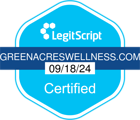Addiction recovery is a transformative journey that demands comprehensive care for the mind, body, and soul. While traditional treatment methods focus on therapy and counseling, the role of nutrition and wellness in this journey is often underestimated. However, the significance of a healthy lifestyle, especially in terms of nutrition, cannot be overstated. Adopting a balanced diet and embracing wellness practices play pivotal roles in promoting healing, restoring vitality, and maintaining sobriety.
The Impact of Addiction on Nutrition
Substance abuse takes a toll on the body’s nutritional balance. Alcohol, drugs, and even certain behaviors associated with addiction can significantly disrupt eating patterns, leading to malnutrition, deficiencies, and overall poor health.
For instance, alcohol addiction can impair nutrient absorption and damage organs like the liver, affecting the body’s ability to process essential vitamins and minerals. Similarly, drug addiction may suppress appetite or lead to binge-eating cycles, resulting in weight fluctuations and inadequate intake of vital nutrients.
The Role of Nutrition in Recovery
In the journey toward recovery, proper nutrition acts as a cornerstone for rebuilding physical health and mental resilience. A well-balanced diet aids in restoring essential nutrients, repairing tissue damage, and replenishing energy levels. It also contributes to stabilizing mood swings and enhancing cognitive function, crucial elements in sustaining recovery efforts.
Key nutrients in recovery include:
- Proteins: Crucial for repairing tissues and supporting the body’s immune system. Sources like lean meats, legumes, and nuts are beneficial.
- Omega-3 Fatty Acids: Known for their anti-inflammatory properties, found in fish, flaxseeds, and walnuts, these support brain health and mood stabilization.
- Vitamins and Minerals: Especially B vitamins, vitamin D, magnesium, and zinc, aid in reducing stress, supporting neurological function, and boosting overall immunity.
- Hydration: Often overlooked, yet fundamental. Staying adequately hydrated is critical for cellular function and detoxification.
Building a Healthy Diet in Recovery
Crafting a nutritious diet in recovery involves mindful choices and a holistic approach. It’s not just about what you eat but also how you approach food and mealtime.
Here are some guidelines to consider:
- Consistency and Structure: Establish regular meal times to regulate eating habits and stabilize blood sugar levels, aiding in mood stability and avoiding cravings.
- Balanced Meals: Incorporate a variety of food groups—whole grains, lean proteins, healthy fats, fruits, and vegetables—to ensure a broad spectrum of nutrients.
- Mindful Eating: Cultivate awareness around eating habits, focusing on satiety cues and savoring each bite. Mindful eating practices encourage a healthier relationship with food.
- Avoiding Triggers: Identify and steer clear of foods that might trigger cravings or emotional eating, creating a supportive environment for your recovery journey.
- Seeking Professional Guidance: Consulting a nutritionist or dietitian specialized in addiction recovery can provide personalized guidance and support to meet individual needs.
Wellness Practices to Support Recovery
Beyond nutrition, incorporating wellness practices significantly contributes to a holistic recovery approach. Here are some beneficial practices:
- Exercise: Engaging in regular physical activity not only aids in physical health but also boosts mood and reduces stress, supporting recovery efforts.
- Mindfulness and Meditation: Practices like meditation, deep breathing exercises, or yoga promote stress reduction, emotional balance, and improved mental clarity.
- Adequate Rest: Prioritizing quality sleep is crucial for overall well-being. Sleep deprivation can impact mood, cognitive function, and stress levels.
- Social Support: Building a supportive network and participating in group activities or counseling can provide a sense of community and encouragement during recovery.
The Road Ahead
Proper nutrition plays a crucial role in the process of addiction recovery. During substance abuse, the body’s nutritional needs are often neglected, leading to deficiencies that can hinder the detoxification process. A well-balanced diet rich in essential nutrients aids in the detoxification process by helping the body eliminate toxins and repair the damage caused by substance abuse. It also helps in restoring the normal functioning of the body systems that have been affected by the addiction.
Nutrient deficiencies can significantly impact the recovery process. Lack of essential nutrients can lead to physical and mental health issues, such as fatigue, depression, and weakened immune system, which can make the recovery process more challenging. By addressing these deficiencies through a balanced diet, individuals in recovery can improve their overall health and well-being, and increase their chances of successful recovery.
If you or a loved one are in Alapaha, GA, and are seeking support for addiction recovery, Green Acres Wellness is here to help. Our team of healthcare professionals specializes in addiction medicine and can provide the necessary support for nutrition and wellness in recovery.
Contact us today to learn more about our services and how we can support you on your recovery journey.

